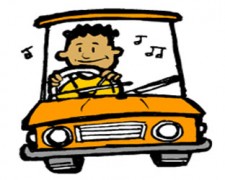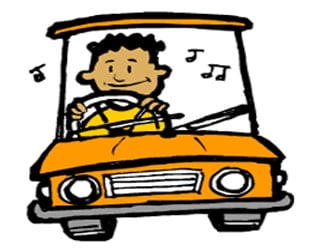 John Villasenor says it’s high time that there is a level field when it comes to artist/label compensation for audio entertainment outlets, and that includes adding royalty requirements on AM-FM radio.
John Villasenor says it’s high time that there is a level field when it comes to artist/label compensation for audio entertainment outlets, and that includes adding royalty requirements on AM-FM radio.
Villasenor decribes the patchwork quilt that has different audio platforms paying artists and labels off completely different rate cards, and suggests that there needs to be some sort of equity established. He also rightly argues that very high rates per spin charged to internet platforms are stifling the growth of that medium.
He even went so far as to note that radio’s claim to drive sales – the bargain it offers to the music industry in exchange for free airplay – is supportable by history, not the least of which is the long and sordid history of payola perpetrated by unscrupulous promoters seeking airplay for their clients and the PDs who played along. None of that would have happened if the airplay did not have intrinsic value.
“But if airtime on traditional AM and FM stations drives sales, so, too, can exposure through cable, satellite, and Internet radio,” argues Villasenor. “And, the argument can also be inverted: By playing artists who people want to hear, broadcasters of all stripes attract more listeners, and can therefore charge higher fees to their advertisers or subscribers. It’s a well-recognized symbiosis in which the benefits flow in both directions. Exposure drives sales, and good music attracts listeners.”
He then notes that the balance is reliant on a one-way flow of intellectual property, from artist to broadcaster that is not reciprocated and says this makes the exchange unfair to the artist.
Villansenor ended up calling for Congress to get back to the recently-abandoned task of passing some new version of the Performance Rights Act.
RBR-TVBR observation: What if instead of imposing a penalty on radio – which has proven ability to enhance recording sales — people worked on getting more realistic and sustainable rates for Pandora and other internet providers? Wouldn’t that enhance the development of internet radio better than punishing radio stations?
Now for some other issues. Villasenor’s claim that the artist/station exchange is an unfair one-way gift of intellectual property with none coming back is untrue on one level and irrelevant on an even more important level.
The intellectual property from the station’s perspective is the format, the air talent and all the other things the station does to make a nice home with lots of fans for the artist’s intellectual property to reside in for three minutes.
But it’s irrelevant – if I buy a CD, it is not an unfair exchange of the artist’s intellectual property with none going back to the artist – of COURSE I’m not offering intellectual property to the artist, who would likely sneer at it contemptuously if I even tried. No, I’m offering cold hard cash for the intellectual property, and I hope and expect that the artists will be happy to accept it.
Radio stations offer free marketing in exchange for free intellectual property, and it was an exchange enjoyed by both sides for years. We know that many of our readers are the proud owners of replica gold records given to them by happy artists as a thank you for the beneficial airplay the station bestowed on the artist’s intellectual property.
The problem came when the internet caught the record labels by surprise. They didn’t suddenly lose their taste for airplay, they suddenly became starved for cash, and the latest iteration of the performance rights battle was born.
Back in our young starving artist days, we would have done anything to get airplay. The last thing we would have expected is to get paid for it too.
So perhaps radio’s fallback position should be to offer airplay to musicians who agree to waive royalties, and we’ll bet there are thousands upon thousands of them who would do so, and charge the others for a three-minute commercial, which is what airplay really is.
But maybe the 1% for and FM chip deal will resurface. Who knows? All we do know is that this isn’t over, nor will it ever be over, so stay tuned.






Editor Dave Seyler’s rebuttal to the “one-way exchange of intellectual property” is excellent. The music industry keeps setting aside the value of broadcast Radio’s ability to sell the music. That proven ability has been returning value to the artists for use of their intellectual property from the very beginning. We spend millions of dollars each year producing and promoting our programming – and their music. Artists get free plugs when they’re playing one of our state’s major venues all the time. It isn’t a “one-way exchange” at all, but truly a symbiotic relationship that offers fair benefit to all concerned. Let’s stop inventing reasons to tax Radio and give the money to the record companies. It’s the biggest reason internet radio – both streaming and pure play – is a financial flop. Artists and labels would be wise to review the fable about the goose and the golden egg.
John Villasenor is a MORON, at least for perpetuating this subject. I have worked for both record labels and radio stations. One label told me if I wasn’t submitting a weekly expense report that didn’t reflect AT LEAST a $600 expenditure for cocaine for programmers, I wasn’t doing my job. Another stressed: Do WHATEVER IT TAKES to get that song on the radio.
Let me see if I can make this clear for whomever out there doesn’t understand. And there are plenty of people who just don’t get it (or are just too greedy) to let this issue go away.
Record Labels make their money by SELLING RECORDED MUSIC.
Radio stations make their money by SELLING COMMERCIALS, which induce the audience to buy their advertisers’ products.
Since ALL radio stations cannot carry talk or sports, some play music. In fact, since the AUDIENCE likes music so much, there are far more music stations than not.
It has been discovered (many, many years ago) that music that DOES get played on the radio gets SOLD and music that does NOT get airplay DOES NOT.
Consequently, having a song played in rotation on the radio is just like a flight of COMMERCIALS for that artist/album. Radio stations do NOT charge the Labels for THOSE commercials and Record Labels as a great rule, do NOT buy real commercials for their artists on the radio, so consequently, RADIO STATIONS ARE GIVING RECORD LABELS TONS OF FREE ADVERTISING.
This is because it is a MUTUALLY SYMBIOTIC RELATIONSHIP that has worked very well for about 90 years.
Can you imagine a record label calling a radio station and saying: “You didn’t send us a fraction of a cent for playing that song, so now you can’t play ANY of our our music.” Can you imagine a radio station sending a label a bill for 3 minutes of commercial airtime every time a song plays?
If I were an entity like Cumulus or Clear Channel or the NAB, MY response to the labels who want me to pay them for the priviledge of giving them free commercials would be: “Here’s your music back. We won’t be needing to hear from your representatives in the future, so please don’t bother sending us any more of your product. We are not going to be responsible for your inability to keep up with technology.”
@scott gilbert
Dude, I think there is something wrong with your CAPS lock key…
In your post there are several words that written in all CAPS and it’s really annoying. You should look into getting that fixed.
Comments are closed.